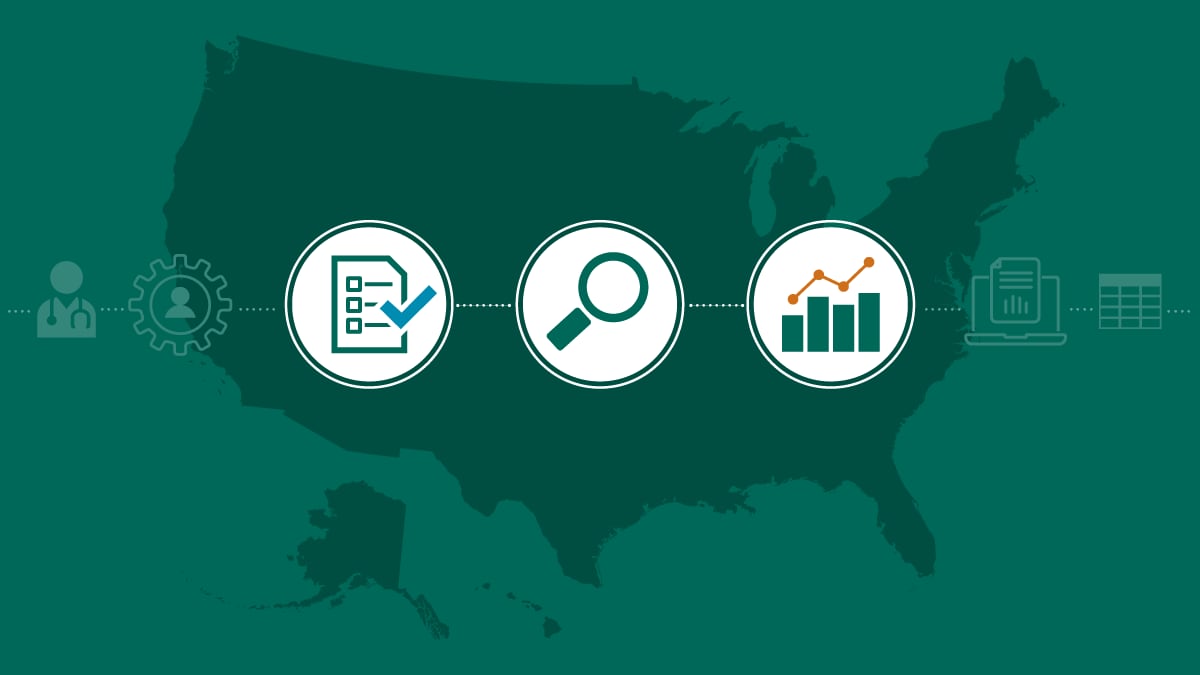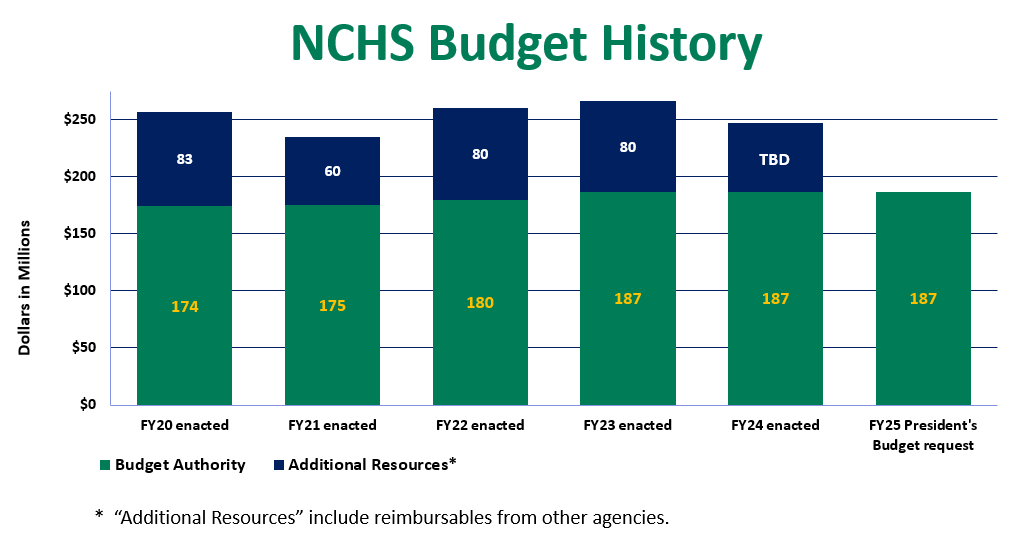Key points
- Annual funding for the National Center for Health Statistics (NCHS) is decided by the United States Congress.
- The NCHS budget amount typically changes for each fiscal year.
- NCHS also receives reimbursements for work we do in collaboration with other agencies.

The NCHS Budget
The United States Congress sets and provides the annual budget for the National Center for Health Statistics (NCHS). The budget provided to NCHS by Congress for fiscal year (FY) 2024 is $187,397,000. FY 2024 runs from October 1, 2023–September 30, 2024.
NCHS's FY 2024 budget is equal to the FY 2023. The FY 2024 budget includes funding for administrative and business services through the CDC Working Capital Fund.
The FY 2025 President's Budget requests $187,397,000 for NCHS, level with the FY 2024 budget passed by Congress. The proposed budget maintains NCHS's capacity to–
- Support ongoing health and healthcare surveys
- Purchase vital records data
- Coordinate evidence-building activities across the federal government
- Advance work outlined in relevant legislation, including the Foundations for Evidence Based Policymaking Act of 2018
- Provide health data to policymakers, researchers, and the American public
For more information on the President's requested NCHS budget, see the FY 2025 CDC Congressional Justification, pages 181–184.

Additional funding sources
NCHS often collaborates with other agencies to collect and analyze data needed to support their missions. These agencies reimburse NCHS to add specific questions of interest to its surveys. NCHS receives these funds (often called reimbursables) from the collaborating agencies in addition to the NCHS congressional budget.
NCHS has historically received a portion of CDC's public health data modernization funding.
